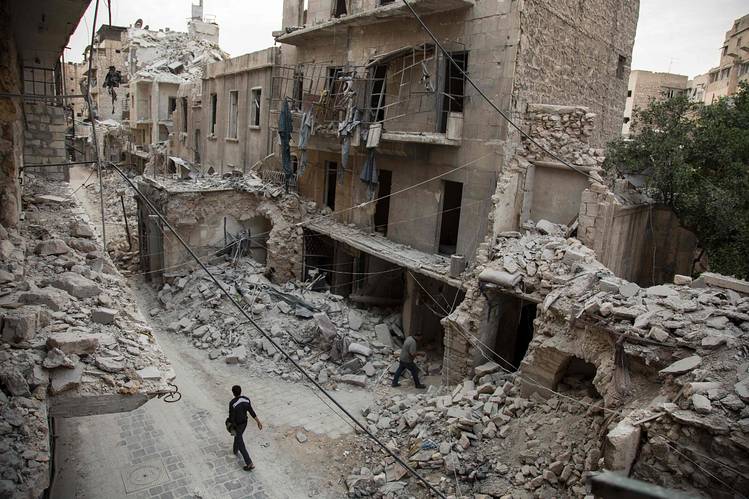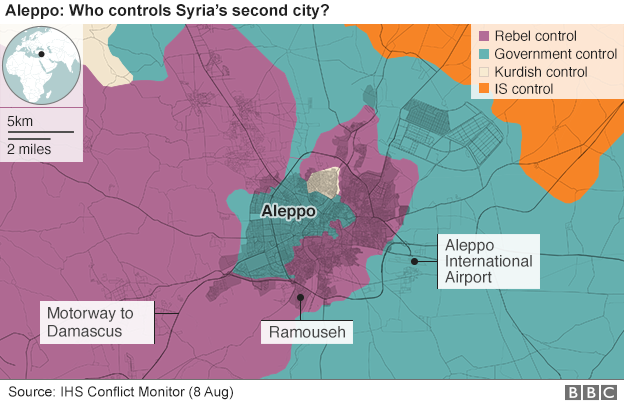
Aleppo, the most populous city in Syria, has become in August the center stage for one of the most tragic urban battles of the country’s five-and-a-half year civil war.![]()
![]()
The first battle of Aleppo that began in July 2012 and lasted for months, brought some of the worst of the earliest fighting to an industrial and cultural capital home to some 2.5 million Syrians before the war.
By early 2013, after thousands of deaths and widespread urban destruction (including parts of Aleppo’s old city and the Great Mosque of Aleppo), a stalemate developed between the eastern half, controlled by various Sunni rebel groups and the western half, controlled by the Syrian army that supports president Bashar al-Assad.
Last week, rebel forces — including the hardline militia formerly known as Jabhat al-Nusra — broke through to Ramouseh, a key sector in the southwest of the city. Among other things, Ramouseh is home to some of the most important bases in the area for the Syrian army. More importantly, the rebel offensive hoped to open and secure a corridor between the besieged eastern half of Aleppo to other rebel-controlled areas to the south of Aleppo that could provide a pathway to food, water, power and other supplies to the rebel-controlled portions of Aleppo.
As of last week, the rebels had the upper hand after pushing into Ramouseh. Over the weekend, however, the Syrian army reclaimed some of its territory and effectively halted the rebel advance with punishing support from the Russian military.

Meanwhile, civilians across Aleppo (in both the government- and rebel-controlled areas) face a growing risk of a humanitarian crisis, lacking access to basic necessities like electric power, food and water in fierce summertime conditions. Intriguingly, Russia’s defense minister Sergei Shoigu also claimed over the weekend that Russian and U.S. forces were close to taking ‘joint action’ on Aleppo. It’s odd because Russian president Vladimir Putin firmly backs Assad, while US officials have expressed the view that Assad’s departure alone can bring about a lasting end to the civil war. One possibility is a pause in hostilities to allow aid workers to provide food, water and medical care to civilians caught in what has become one of the deadliest battles in the Syrian civil war to date.
As the battle for Aleppo dominates headlines about Syria’s war, it is quickly becoming a symbolic fight for Syria’s future. Continue reading Who should you want to win the battle for Aleppo?